In New York City, ordering fish from a purveyor, I never know who caught it and where. Basically you're at the mercy of your buyer. When I travel to Ecuador, the entire food experience is in your face, giving the sights and smells from land and sea. Take a morning walk in Puerto Lopez, where I was fortunate enough to view fishermen at work, the fish coming from the water to my feet.
Stepping on to the deserted side of the beach, we saw the first signs of that daily war around eating that's common to Third World, the remains of what wasn't used. In this case, dead fish from the previous day's catch. According to Begnino, our encyclopedic tour guide who knows Ecuador like no one else, they were likely from overloaded tubs. Or else they were the victims of the swooping sea birds, who'd come in to the boats looking to steal some lunch.
Moving onwards, we came to a mass of boats and trucks lined along beach. Between stray dogs, and crowds of of people along
the shore, flew birds diving for a free meal over lots of fish-packed plastic tubs carried from small boats to the shore onto the waiting trucks.
Along with the stray dogs, you'd see domesticated cats and dogs at almost every point, sunning themselves on the beachfront. One adorable fellow was left out. I have to admit that he tugged at my heart strings. He didn't whimper or cry as I pet his little head. My sense was that he undoubtedly knew his fate was at the mercy of the gods or himself.
Various bigger fish were spread out by the fisherman along the sand, as other parts of the catch were sorted out for the market. Three large swordfish were displayed side by side on the breaking tide as tourists gawked and fisherman feverishly divided the catch.
There were manta rays, large grouper, Mahi-mahi, Sepia, and snappers. One fish even had another fish caught in its mouth. And then there were the sharks, small and large, including hammer heads. The variety seemed endless.
We stopped to see fish mongers butchering the catch for markets across Ecuador, and presumably around the world. Their furious speed and knife work was amazing. It's no wonder after a long days work you find these hard workers spread out for a siesta on the hamacas in front of there simple homes taking a siesta.
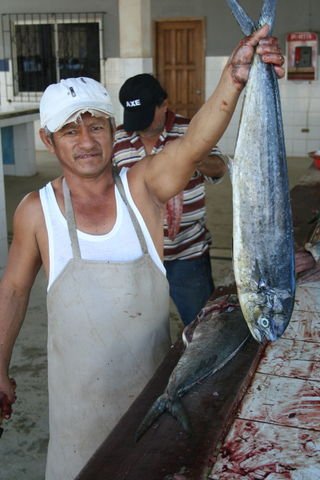
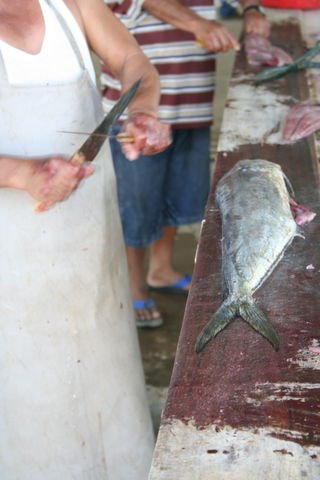
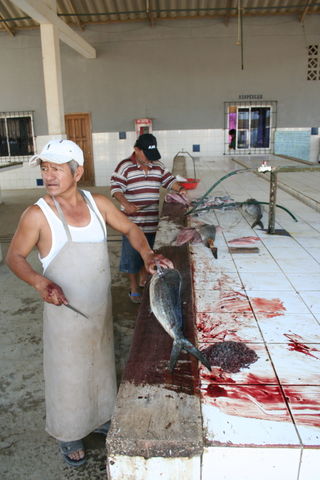
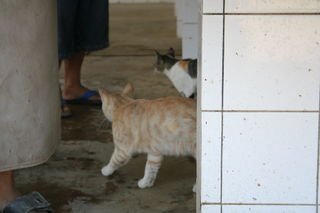
Begnino noticed fish roe, from a shark, and bought them for a couple of dollars. It's said they help in various medicinal cures. According to Begnino, the cure includes blending raw roe in some coca cola. I suddenly felt very healthy, not at all needed to partake, though my wife and her brother enjoyed this local tonic. I demurely said I would be ok with just the coke straight up, thank you very much!
As I feverishly snapped pictures, Benigno introduced me to various fish varieties, while conversing with the men who caught them. The men were all curious why I would want to snap photographs, and were amazed that I would be introducing pictures of the sea creatures for what they learned was "a food blog on the internet."
There was even a fisherman who wanted to give us his name and address so we could forward him some pictures. He went as far as to change into a t-shirt with a silk screened image of the countries new President, Rafael Correa, Begnino an ardent Social Christian Democrat looked on in disdain and laughed at the partisan political gesture of allegiance, I just snapped at the fish that were so amazing and so were the fisherman, humble and giving.
I want to thank the hard working men and women who work on the boats and in the
butchering stations of Puerto Lopez. They reminded me of what hard work means. Here in the developed world, so many of us have become rather lazy and comfortable, with modern life's mantra of "convenience." There are fewer conveniences in Ecuador. That said, they certainly have no lack of beautiful food and gracious people.
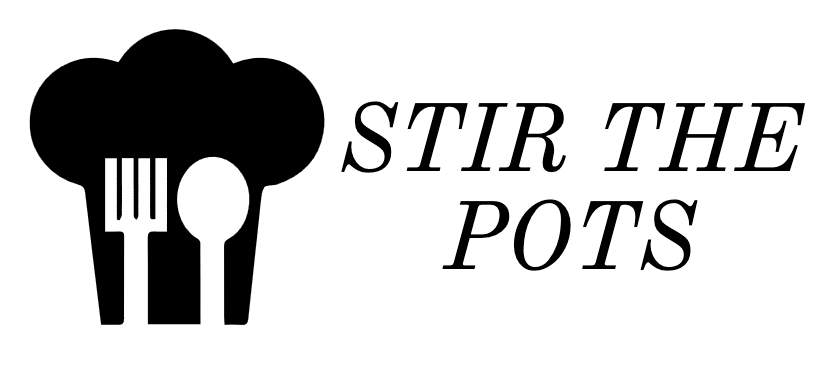
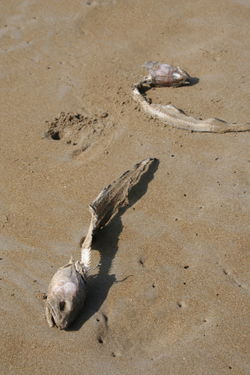
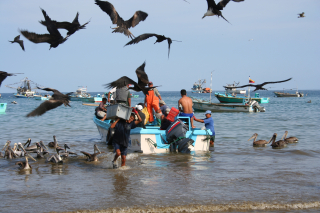
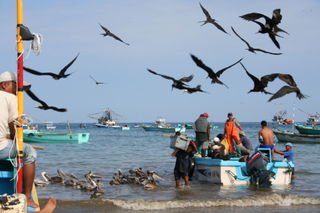
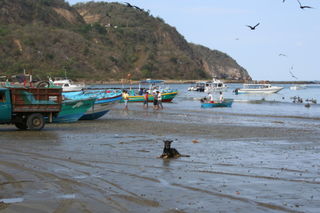
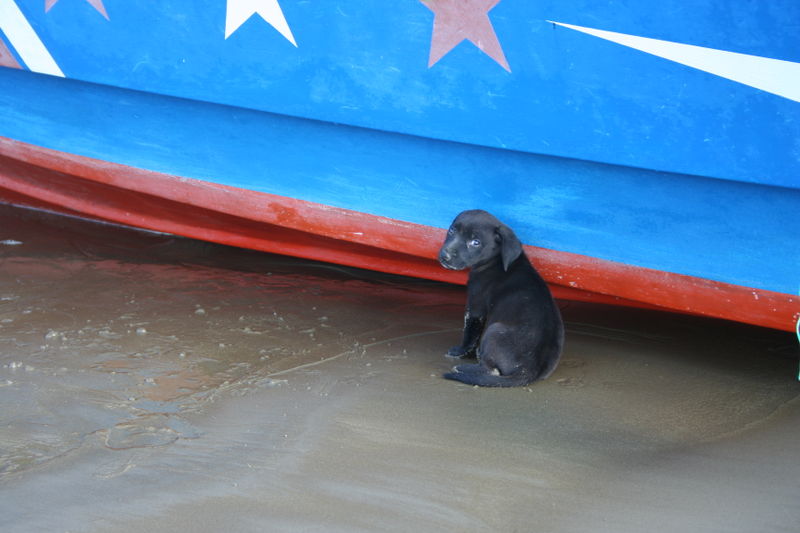
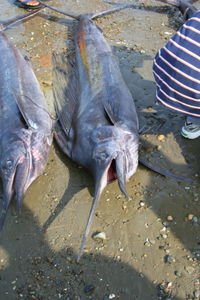
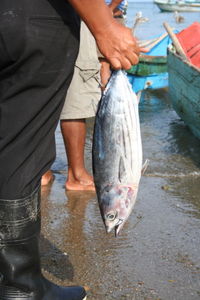
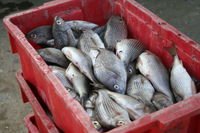
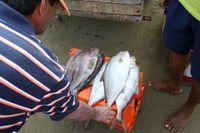
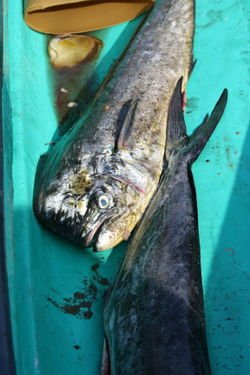
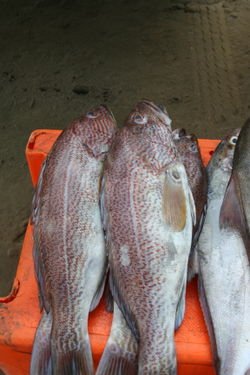
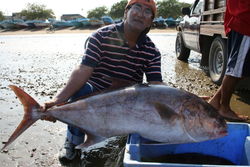
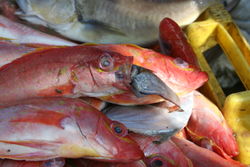
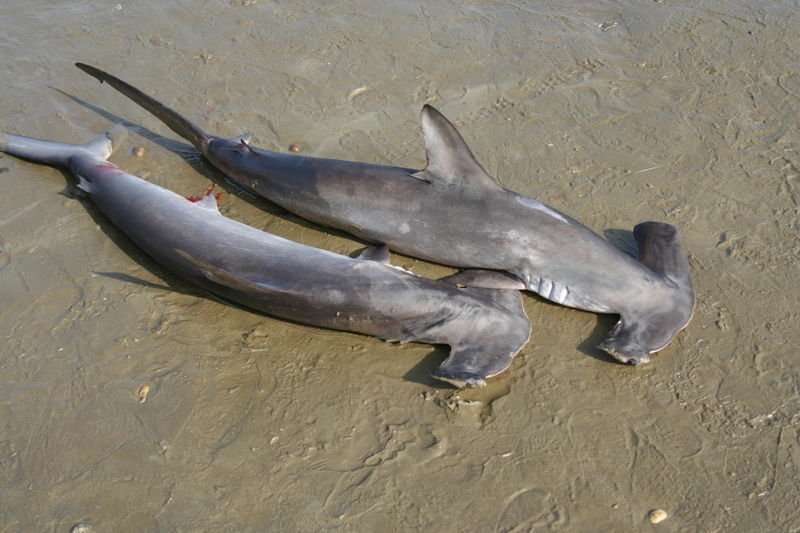
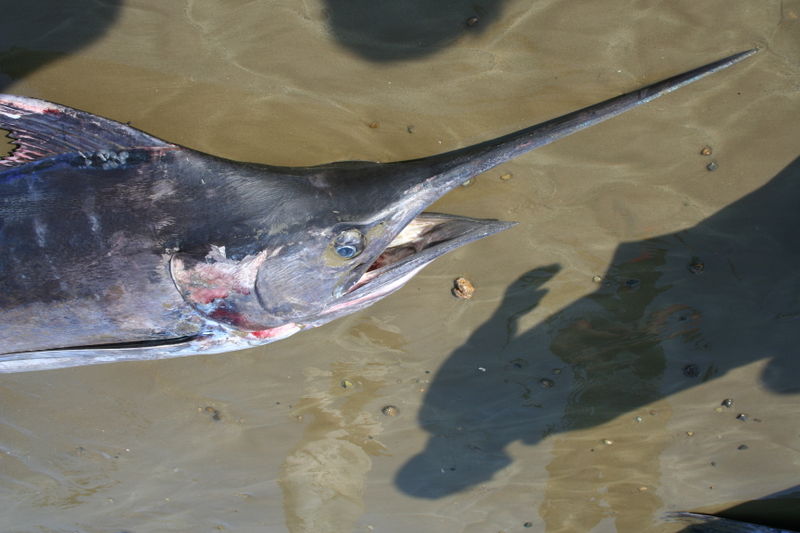
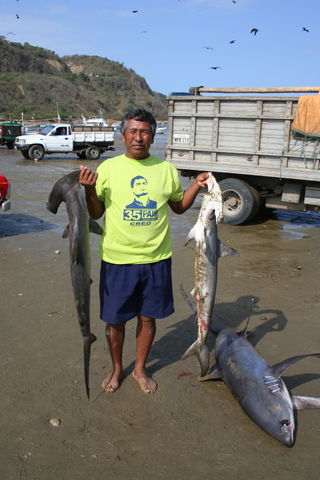
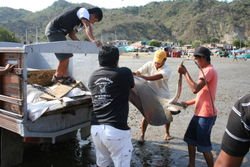
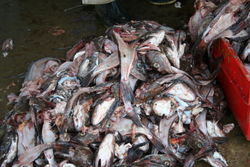
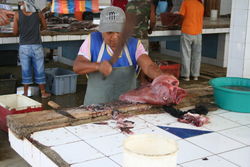
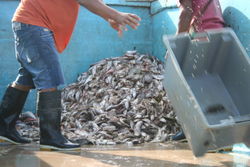
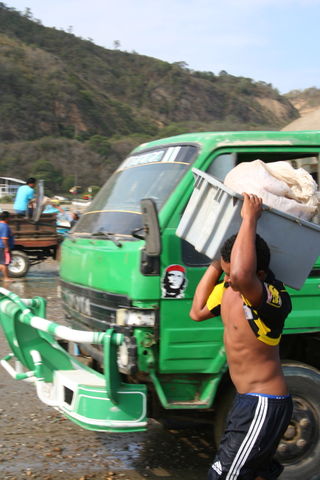
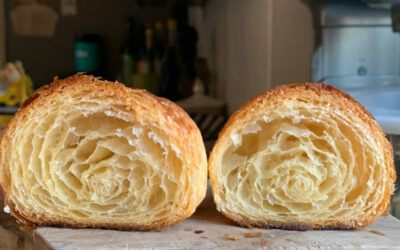
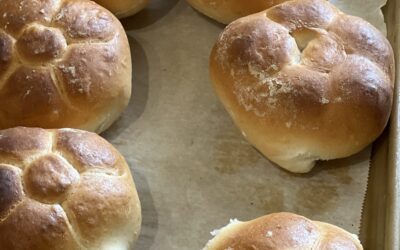


0 Comments